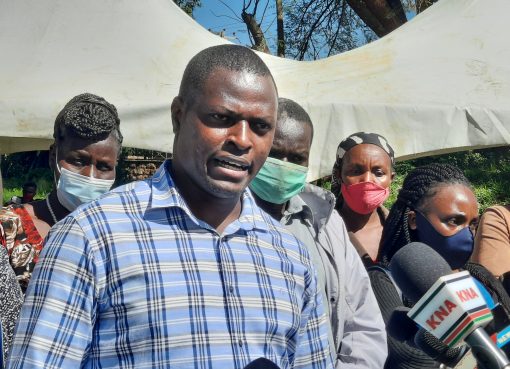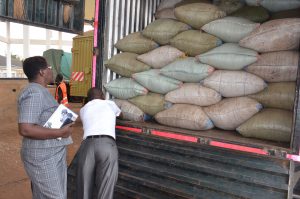
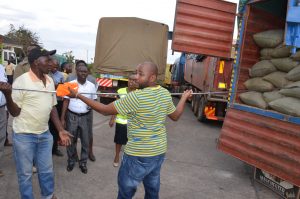
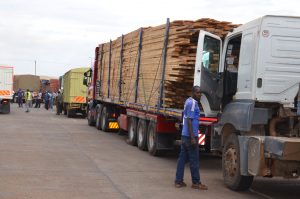
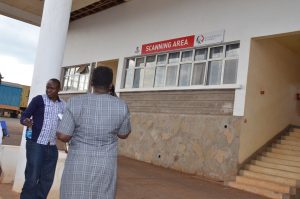
Lack of scanner at Taveta One Stop Border Post (OSBP) at the border between Kenya and Tanzania remains the biggest cause for long delays in clearance for goods and other products coming into the country.
Constructed between 2012 and 2015, the Taveta OSBP was meant to streamline the cross-border trade operations and enhance the smooth movement of goods and service across the several counties served by the border point.
However, the envisaged efficiency remains a mirage with massive delays and truck-pile up being reported as they await clearance from the customs officials. The biggest impediment is absence of an automated truck scanner which would cut by half time taken to clear the cargo.
Currently, the OSBP is forced hire casual laborers who assist in conducting a 100 per cent manual verification of all the goods contained in trucks crossing the border. This means all containers are opened and all goods unloaded for counting and authenticating contents. After the exercise, all the goods are packed back into the containers which are sealed and later released.
The arduous process can take between four to six hours for a single truck to be cleared depending on its contents. As a result, truckers have been reported to spend over four days at the post waiting for clearance.
The Taveta OSBP Manager, Phylis Mutwor says, “Lack of scanner means all goods must be checked manually. This translates to delays and other additional expenses in terms of labor”.
“The scanner is yet to be installed and we hope it will. This OSPB is very busy and such a machine will enhance efficiency here,” she said.
With a scanner, there would be no need to offload goods for verification unless something suspicious was identified in the cargo. It also means the government will save hundreds of thousands of shillings used to pay dozens of casual labourers who offload and load back the cargo in the trucks.
During a recent tour by County Development Implementation and Coordination Committee (CDICC) at the facility, the County Commissioner (CC), Rhoda Onyancha said there was need to have the border post being fully operational and said the matter would be escalated to the relevant ministries for action.
Ms. Onyancha said the OSBP had vastly improved the movement of people and goods between Kenya and Tanzania and said all efforts would be applied to installation of a scanner.
“We hope the facility will get all the necessary equipment
The OSBP was constructed through funding by Trade Mark East Africa at a cost of Sh.1.2 billion. This cost covered both the Tanzania and Kenya posts.
The facility was opened by President Uhuru Kenyatta in October 2015, but the project has not yet been commissioned because both the heads of state for Kenya and Tanzania must be present. There are also reports that the OSBP needs to have the scanner installed before its officially commissioned.
Truckers using the border post to take goods to and from Arusha and Northern Tanzania admit that the construction of Voi-Taveta-Holili highway has vastly improved the transportation business in the region.
However, they concede that the manual verification is exhausting and time-consuming. They are appealing for an automated scanner to be put in place which will see a truck cleared within two hours after arrival.
Samson Chadai, a trucker using the border point, said the OSBP had become a nightmare especially due to the clogging and overcrowding of trailers at the facility, claiming that many truckers were spending days waiting for their trucks to be inspected.
“It’s very tough. If you have 200 bags of onions, they must check each bag and pack them back to the trailer. It’s a lot of work and it causes delays,” he said.
By Wagema Mwangi




